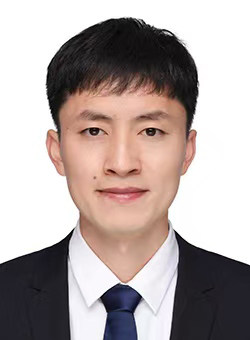
Dr. Zhiwei Shan, Associate Professor
School of Civil Engineering, Southeast University, Nanjing, China
Topic: Evaluation of Mechanical Properties of Corroded Space Grid Structures
View More![]() 2025 11th International Conference on Civil and Environmental Engineering
2025 11th International Conference on Civil and Environmental Engineering
 Nov. 23-25, 2025
Nov. 23-25, 2025
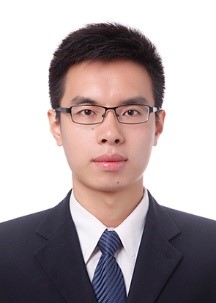
Dr. Mingxin Xu, Associate Professor
School of New Energy, North China Electric Power University, Beijing, China
Topic: Research on the Pyrolysis of Waste End-of-life Wind Turbine Blades and Recovery of High-quality Glass Fibers
View More![]() 2025 12th International Conference on Energy, Environment and Earth Sciences
2025 12th International Conference on Energy, Environment and Earth Sciences
 Nov. 23-25, 2025
Nov. 23-25, 2025
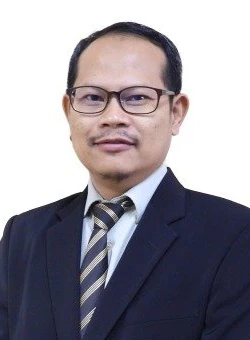
Dr. Muhamad Zahim Sujod, Associate Professor
Faculty of Electrical & Electronics Engineering Technology, Universiti Malaysia Pahang Al-Sultan Abdullah, Pekan, Malaysia
Topic: The Future of Wind and Solar Energy: Driving Progress Toward the UN Sustainable Development Goals
View More![]() 2025 12th International Conference on Energy, Environment and Earth Sciences
2025 12th International Conference on Energy, Environment and Earth Sciences
 Nov. 23-25, 2025
Nov. 23-25, 2025
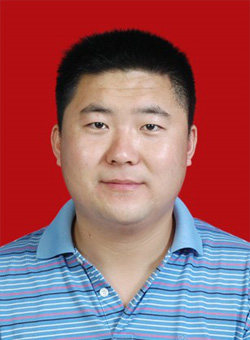
Dr. Dejun Yang, Associate Professor
School of Environment and Spatial Informatics, China University of Mining and Technology, Xuzhou, China
Topic: The Variation Laws and Quantitative Characterization of Soil Physical and Chemical Properties in the Western Mining Area Environment
View More![]() 2025 12th International Conference on Energy, Environment and Earth Sciences
2025 12th International Conference on Energy, Environment and Earth Sciences
 Nov. 23-25, 2025
Nov. 23-25, 2025

Dr. Don Kulasiri, Professor
Centre for Advanced Computational Solutions (C-fACS), Ag and Life Science Faculty, Lincoln University, Christchurch, New Zealand
Topic: Systems Biology Research in Alzheimer’s Disease & Model Reduction Using Machine Learning
View More![]() 2025 12th International Conference on Biology and Life Sciences
2025 12th International Conference on Biology and Life Sciences
 Nov. 23-25, 2025
Nov. 23-25, 2025
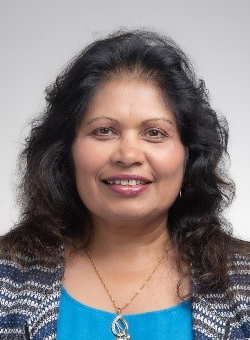
Dr. Sandhya Samarasinghe, Professor
Centre for Geospatial and Computing Technologies, Lincoln University, Christchurch, New Zealand
Topic: AI Modelling of Protein Networks – Mammalian Cell Cycle
View More![]() 2025 12th International Conference on Biology and Life Sciences
2025 12th International Conference on Biology and Life Sciences
 Nov. 23-25, 2025
Nov. 23-25, 2025
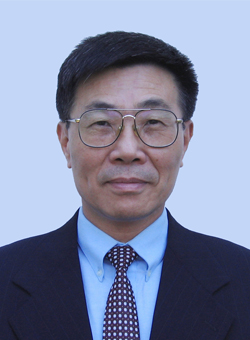
Dr. Wenjie Zhang, Professor
Department of Obstetrics and Gynecology, Center for Reproductive Medicine, Tongji Medical College, Huazhong University of Science and Technology, Wuhan, China
Topic: Introducing A New Strategy For Cervical Screening In Developing Countries: The Same-day “Screen-and-Diagnosis” Screening Incorporates Visual Inspection, Pap Test and Biopsy
View More![]() 2025 11th International Conference on Health, Medicine and Life Sciences
2025 11th International Conference on Health, Medicine and Life Sciences
 Nov. 23-25, 2025
Nov. 23-25, 2025
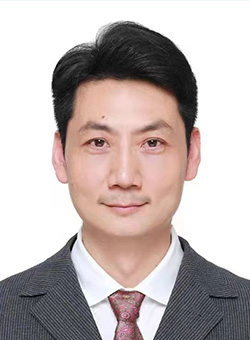
Dr. Zigang Yao, Professor
School of Art Design and Media, East China University of Science and Technology, Shanghai, China
Topic: Cultural Empowerment Through Campus Outdoor Visual Identity: A Case Study of ECUST’s Xuhui Campus
View More![]() 2025 11th International Conference on Social Sciences and Humanities
2025 11th International Conference on Social Sciences and Humanities
 Nov. 21-23, 2025
Nov. 21-23, 2025
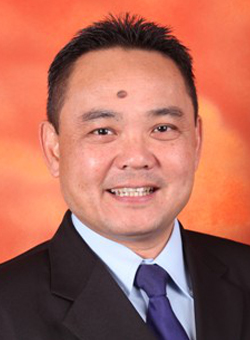
Dr. Lim Boon Hooi, Associate Professor
Faculty of Education and Liberal Arts, INTI International University, Nilai, Malaysia
Topic: Core Strength Exercise as a Dual Strategy for Promoting Public Health and Optimizing Athletic Performance
View More![]() 2025 11th International Conference on Social Sciences and Humanities
2025 11th International Conference on Social Sciences and Humanities
 Nov. 21-23, 2025
Nov. 21-23, 2025
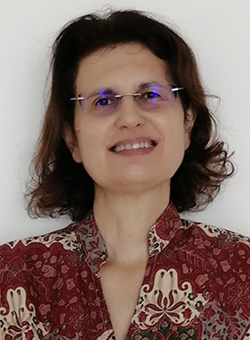
Dr. Anne Raffin, Associate Professor
Department of Sociology, Faculty of Arts and Social Sciences, National University of Singapore, Singapore
Topic: French Retirees in Asia: From Ageism to Voluntarism
View More![]() 2025 11th International Conference on Social Sciences and Humanities
2025 11th International Conference on Social Sciences and Humanities
 Nov. 21-23, 2025
Nov. 21-23, 2025
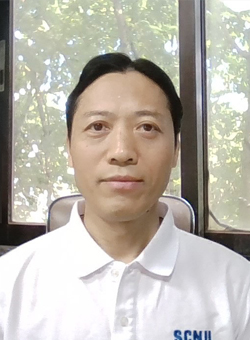
Dr. Bo Liu, Associate Professor
School of Information Technology in Education, South China Normal University, Guangzhou, China
Topic: Predictors of Danmaku Video Adoption by Pre-Service Educators
View More![]() 2025 International Conference on Education and Artificial Intelligence
2025 International Conference on Education and Artificial Intelligence
 Nov. 21-23, 2025
Nov. 21-23, 2025
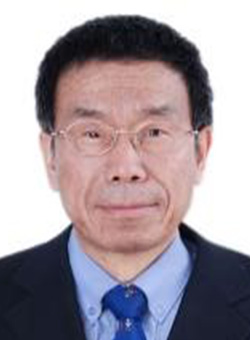
Fuyong Jiao, Professor
Shaanxi Provincial People's Hospital, Xi'an Jiaotong University, Xi'an, China
Topic: Research Progress on Gastrointestinal Symptoms and Sleep Problems in Children with Autism Spectrum Disorders
View More![]() 2025 10th International Conference on Public Health and Medical Sciences
2025 10th International Conference on Public Health and Medical Sciences
 Aug. 17-19, 2025
Aug. 17-19, 2025
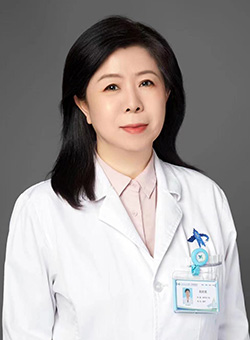
Dr. Qingbin Zhao, Professor
Department of Geriatric Endocrinology, The First Affiliated Hospital of Xi'an Jiaotong University, Xi'an, China
Topic: Progress of Clinical Research on Diabetic Cardiovascular Diseases in Northwest China
View More![]() 2025 10th International Conference on Public Health and Medical Sciences
2025 10th International Conference on Public Health and Medical Sciences
 Aug. 17-19, 2025
Aug. 17-19, 2025
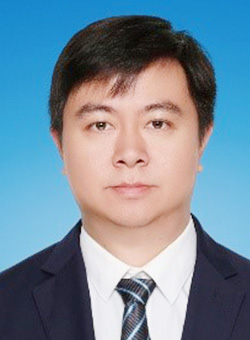
Dr. Yunan Chen, Professor
School of Energy and Power Engineering, Xi'an Jiaotong University, Xi'an, China
Topic: Resource Utilization of Organic Solid Waste in Supercritical Water: Gasification Mechanisms, Kinetic Analysis, Migration Mechanism of Sulfur and Heavy Metal Elements
View More![]() 2025 10th International Conference on Energy, Environment and Resources
2025 10th International Conference on Energy, Environment and Resources
 Aug. 17-19, 2025
Aug. 17-19, 2025
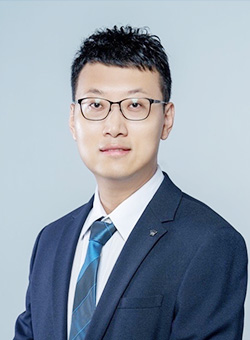
Dr. Zhen Zhang, Professor
School of Materials Science and Engineering, Northwestern Polytechnical University, Xi'an, China
Topic: Confined Electrocatalytic Materials Toward Catalytic Conversion of Energy Small Molecules
View More![]() 2025 10th International Conference on Energy, Environment and Resources
2025 10th International Conference on Energy, Environment and Resources
 Aug. 17-19, 2025
Aug. 17-19, 2025

Dr. Abudukeremu Kadier, Professor
Xinjiang Technical Institute of Physics and Chemistry (XTIPC), Chinese Academy of Sciences (CAS), Urumqi, China
Topic: Renewable Energy-Driven Technologies for Clean Treatment and Resource Utilization of High Salinity Water and Industrial Wastewater
View More![]() 2025 10th International Conference on Energy, Environment and Resources
2025 10th International Conference on Energy, Environment and Resources
 Aug. 17-19, 2025
Aug. 17-19, 2025
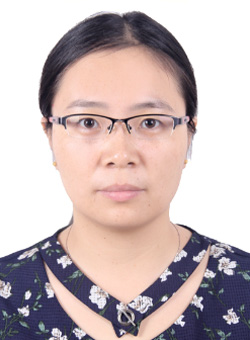
Dr. Li Luo, Associate Professor
School of Environmental and Municipal Engineering, Xi'an University of Architecture and Technology, Xi'an, China
Topic: Impact of Recharge Water Source Quality on Chlorella Vulgaris Growth and Biomass: Strategies for Eutrophication Control in Urban Landscape Lakes
View More![]() 2025 10th International Conference on Energy, Environment and Resources
2025 10th International Conference on Energy, Environment and Resources
 Aug. 17-19, 2025
Aug. 17-19, 2025

Dr. Laura Christ Dass, Associate Professor
Academy of Language Studies, Universiti Teknologi MARA (UiTM), Shah Alam, Malaysia
Topic: Teaching for Tomorrow: Merging Environmental Awareness with English Language Learning Through AI
View More![]() 2025 10th International Conference on Economics, Management and Social Sciences
2025 10th International Conference on Economics, Management and Social Sciences
 Aug. 17-19, 2025
Aug. 17-19, 2025
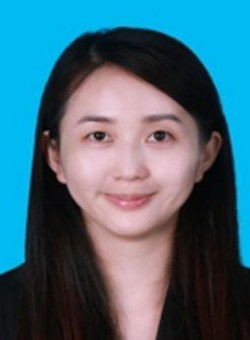
Dr. Lo Yueh Yea
Faculty of Education, University of Malaya, Kuala Lumpur, Malaysia
Topic: Media and Information Literacy for Academic Writing and Intercultural Communication in the Age of AI
View More![]() 2025 10th International Conference on Education and Innovation
2025 10th International Conference on Education and Innovation
 Aug. 17-19, 2025
Aug. 17-19, 2025

Dr. Wan Ahmad Jaafar Wan Yahaya, Professor
Centre for Instructional Technology and Multimedia, Universiti Sains Malaysia, Penang, Malaysia
Topic: Formulation and Validation of a Digital Competency Assessment Instrument for Lecturers in Open and Distance Higher Education
View More![]() 2025 10th International Conference on Education and Innovation
2025 10th International Conference on Education and Innovation
 Aug. 17-19, 2025
Aug. 17-19, 2025
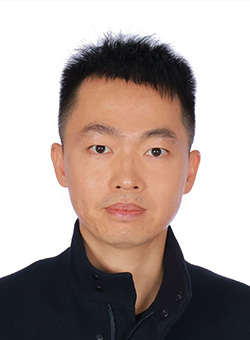
Dr. Peng Huang, Associate Professor
School of Civil Engineering, Sun Yat-sen University, Zhuhai, China
Topic: Hydrologic Performance of Permeable Pavements Under Extreme and Regular Rainfall Conditions
View More![]() 2025 10th International Conference on Civil and Environmental Engineering
2025 10th International Conference on Civil and Environmental Engineering
 May 25-27, 2025
May 25-27, 2025
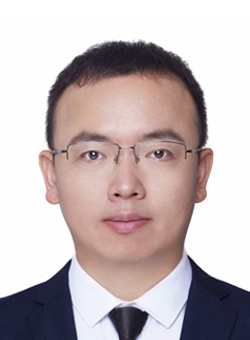
Dr. Xuekun Fang, Professor
College of Environmental and Resource Sciences, Zhejiang University, Hangzhou, China
Topic: Fluorinated Gases for the Ozone Layer and Climate: Historical and Future Emissions
View More![]() 2025 11th International Conference on Energy, Environment and Earth Sciences
2025 11th International Conference on Energy, Environment and Earth Sciences
 May 25-27, 2025
May 25-27, 2025
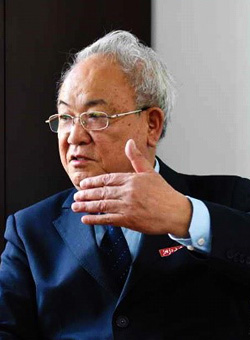
Dr. Wencai Yang, Professor
Institute of Geo-science, Zhejiang University, Hangzhou, China
Topic: On the Hydrogen Energy, New Materials and Mineral of Rare-Metal Deposits
View More![]() 2025 11th International Conference on Energy, Environment and Earth Sciences
2025 11th International Conference on Energy, Environment and Earth Sciences
 May 25-27, 2025
May 25-27, 2025
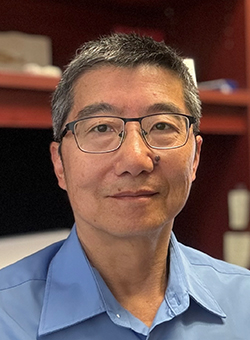
Dr. Yong Rao, Professor
Centre for Research in Neuroscience, McGill University, Montreal, Canada
Topic: Dissection of the Mechanisms Controlling Visual Circuit Development and Function in Drosophila
View More![]() 2025 11th International Conference on Biology and Life Sciences
2025 11th International Conference on Biology and Life Sciences
 May 25-27, 2025
May 25-27, 2025
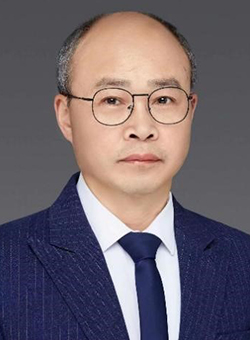
Dr. Haiyun Xu, Professor
School of Mental Health, Wenzhou Medical University, Wenzhou, China
Topic: Demonstration of the Pathway from DA Elevation Through Mitochondrial Dysfunction to Hypomyelination in the Pathogenesis of Schizophrenia: in Vivo and in Vitro Studies
View More![]() 2025 10th International Conference on Health, Medicine and Life Sciences
2025 10th International Conference on Health, Medicine and Life Sciences
 May 25-27, 2025
May 25-27, 2025
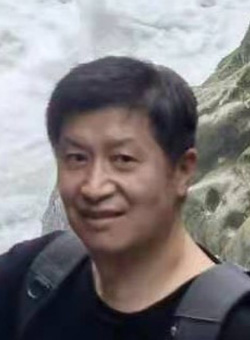
Dr. Jun Ren, Professor
Department of Cardiology, Zhongshan Hospital Fudan University, Shanghai, China
Topic: Dynamic Regulation and Intervention of Aberrant Mitochondria-Endoplasmic Reticulum Interaction and Metabolic Reprogramming in Heart Failure
View More![]() 2025 10th International Conference on Health, Medicine and Life Sciences
2025 10th International Conference on Health, Medicine and Life Sciences
 May 25-27, 2025
May 25-27, 2025
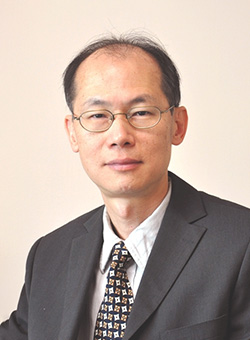
Dr. Sing Kai LO, Professor
The Education University of Hong Kong, Hong Kong SAR, China
Topic: Teachers as Catalysts: Improving School-Family-Community Collaboration for Autism Support
View More![]() 2025 10th International Conference on Social Sciences and Humanities
2025 10th International Conference on Social Sciences and Humanities
 May 23-25, 2025
May 23-25, 2025

Dr. Kevin Visconti
School of Professional Studies, Columbia University, New York City, United States
Topic: Human Ideation: Communicating Ideas into Innovation in a World of AI
View More![]() 2025 10th International Conference on Social Sciences and Humanities
2025 10th International Conference on Social Sciences and Humanities
 May 23-25, 2025
May 23-25, 2025

Dr. Rossilah Jamil, Associate Professor
Azman Hashim International Business School, University Technology Malaysia, Kuala Lumpur, Malaysia
Topic: Sustainable Human Resource Management Through Neurodiversity Employment
View More![]() 2025 8th International Conference on Innovation Management and Entrepreneurship
2025 8th International Conference on Innovation Management and Entrepreneurship
 May 23-25, 2025
May 23-25, 2025
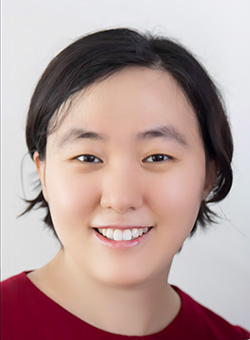
Dr. Ailin Leng, Associate Professor
Center of Economic Research, Shandong University, Jinan, China
Topic: Competitive Behavior, Economic Investment, and Educational Equality
View More![]() 2025 10th International Conference on Economics, Finance and Management Science
2025 10th International Conference on Economics, Finance and Management Science
 May 23-25, 2025
May 23-25, 2025
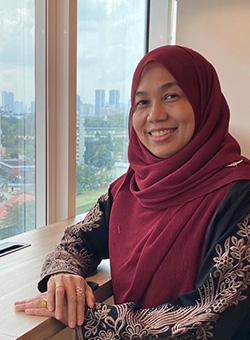
Dr. Nazimah Hussin, Associate Professor
Azman Hashim International Business School, University Technology Malaysia, Kuala Lumpur, Malaysia
Topic: Action Research as a Catalyst for Financial Sustainability
View More![]() 2025 10th International Conference on Economics, Finance and Management Science
2025 10th International Conference on Economics, Finance and Management Science
 May 23-25, 2025
May 23-25, 2025
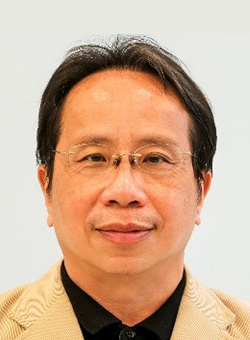
Dr. Wu-Yuin Hwang, Professor
Faculty of Science and Engineering, Taiwan Dong-Hwa University, Taiwan, China
Topic: Xducation of Things (XoT)-Education of All Things with AI and Edge Computing
View More![]() 2025 9th International Conference on Education and Information Technologies
2025 9th International Conference on Education and Information Technologies
 May 23-25, 2025
May 23-25, 2025
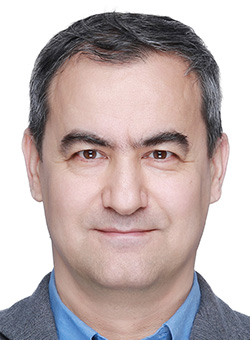
Dr. Shadiev Rustam Narzikulovich, Professor
College of Education, Zhejiang University, Hangzhou, China
Topic: Empowering Global Learning Through AI: Innovations for Cultivating Global Citizenship
View More![]() 2025 9th International Conference on Education and Information Technologies
2025 9th International Conference on Education and Information Technologies
 May 23-25, 2025
May 23-25, 2025

conference123 is an international academic communication platform, that facilitates high-level symposiums and fostering innovation. It serves as a platform for academic conferences, bringing together experts and scholars worldwide to exchange research findings.
Participation Guidelines
Contact Us
Email: contact@conference123.net
Cell Phone: 0086-18616502321
0086-18621626037
|
Address: |
11th Floor, Block B, Pinzun International Center, No. 567, Langao Road, Putuo District, Shanghai |

沪公网安备 31010702005022号